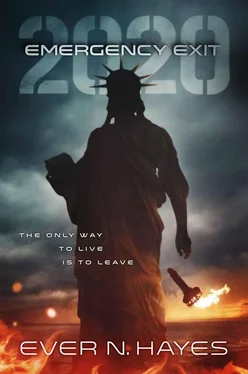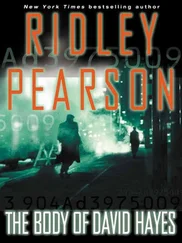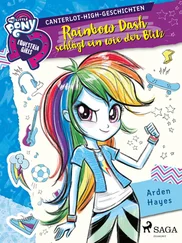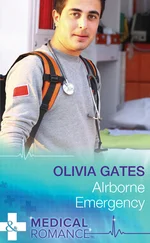We were all deeply affected by the town’s surround stillness. Our softest footsteps on the way here had reverberated like drumbeats. Our nervous breaths echoed like shouts. And now, even the meek and innocent chirps of a few surviving crickets ricocheted through this building like gunshots. So this is what deafening silence is like .
The boys found three trucks, loaded them up, and once again we got on our way. At this point, it was close to 3 a.m. The sun would be up in a few short hours, and it wouldn’t be long until the soldiers blew the bunker open. We had a long way to go.
Hoping no drones would be flying at night, we raced west towards Medora. We arrived at Belfield, a few miles east of Medora, a little before 7 a.m.. Wes had given Danny his older, American model, thermal detector and Danny had it plugged into the lead vehicle. It wasn’t as high-tech as the enemy THIRST systems, and Wes wasn’t certain of the range, but he knew it worked well for tracking deer, turkeys, and even lifeforms as small as squirrels and rabbits. He figured it would be worth having along. Danny tested the system out on the drive towards Medora and claimed it was pretty accurate to ten miles or so, best as he could tell. At least now we weren’t completely blind.
The sun was rising steadily above the Badlands now, and we knew we had to find a place to hide soon, but for the moment our minds were trying to handle what our eyes were seeing. At first, when Hayley said the word ‘cow’ I thought nothing of it. I had seen it too. Several of them in fact. But when she whacked my arm, poked Dad in the back and said, “Seriously! Cow!” I knew what she was getting at. We were driving by a farm and there were living breathing domesticated animals there. Two dogs were running alongside the road barking at us. And then there were people. There was a man walking from a barn towards a house, another riding a tractor, and a woman out raking in the yard. She waved amicably at us as we drove past. Okay… what the heck is going on here?
Danny pulled his truck over to the side of the road and we slowed to a stop beside him. We could see more cattle up ahead, and a green combine cutting through a field of corn. “What do you make of this?” he asked us.
“I have no idea.” Dad replied.
“They’re acting like nothing has happened.” Mom chimed in.
“Maybe they don’t know anything has.” I heard Kate say from the other truck, beside Danny.
Wes had pulled up to our left at this point and he joined in the conversation. “There’s nothing around here,” he said vaguely.
“Actually,” Danny disagreed, shaking his head. “That’s the problem. There is something around here.”
“That’s not what I mean,” Wes clarified. “There are no airfields around here, and we’re surrounded by canyons. There’s a chance the chemicals missed these people entirely and they have no idea what’s going on.”
What he said made sense, and being from the area, he would know better than we would. Wes volunteered to stop and talk to them, but urged us to continue on to Medora. We all knew we couldn’t stop the army that was coming, and we didn’t have a lot of time to spare, but maybe we could round up some people and at least say something. We agreed to encourage as many people as we could between here and Medora to meet us at the town square in an hour. We had to give it a shot.
As we continued west from Belfield, we urged everyone we came across to follow us into town. We didn’t have time to tell the story a hundred times. We hoped to effectively present it to a crowd just once. Then we knew we had to keep moving.
SEVENTEEN: “Bully Pulpit”
Loosely translated, a bully pulpit is an organized summit where someone forces their views upon others. It’s also the name of a great golf course a few miles outside Medora, carved through the North Dakota Badlands. I couldn’t pass through here and not think of it. Not even under these circumstances.
Teddy Roosevelt was credited with coining “bully pulpit” in reference to the White House and the president’s powers to advocate his agenda. Here, surrounded on all sides by Theodore Roosevelt National Park, we pulled into the Medora town square to give our own speech. We had spent almost an hour driving around to area homes and farms trying to convince local residents to come to the center of town, to hear out our formal warning. Those efforts had minimal success and carved into the valuable lead we had on our pursuers.
Around 9 a.m., Danny and I used our own bully pulpit to try to convince the hundred or so citizens who showed up to leave town—head north, south, somewhere, anywhere, anything but stay here. The collective resistance astonished us. We were actually booed and insulted. Several citizens told us they’d heard this already from a few other visitors and no enemy force had come yet. We lost half the small crowd before we had even finished speaking. No matter what we said a majority of them didn’t seem to believe us. Frustrated by the ignorance, I urged everyone there to pick up their phone and call anyone they knew who lived anywhere else in the country. I saw very few people even try. Unbelievable! One extra vocal opponent to our advice yelled out that, “he wasn’t afraid of no terrorists. If they really wanted him, they could come get him.” Oh, they’re coming, you idiot .
The entire population of a ten-mile radius around Medora was barely three hundred strong, and less than a quarter of them took our advice, most of those heading north for Canada. The majority of residents decided they’d stay put and face whatever was coming. Two words: Imminent death . One rancher’s thirty-five-year-old daughter, Tara, and her eleven-year-old daughter, Emily, were in town visiting from Rapid City. When the rancher heard our story he believed it entirely and led his daughter and granddaughter directly to Danny and me. He pleaded with us to take the two of them along, even though he intended to stay put. “My wife has stage 4 breast cancer. She doesn’t have much time left. She can’t travel and I can’t leave her.” He said. We respectfully didn’t argue with him.
Danny, Dad and I had discussed what we’d do if other survivors along the way wanted to join us. We initially had no opposition to the idea, but our selflessness had almost fatally backfired with Wooly. Now, we were more than a little leery of taking similar chances. For some reason though, I wasn’t opposed to these two joining us. Okay, so it was an obvious reason. The rancher’s daughter was a visual knockout. I caught Hayley’s amused stare and ignored it. She seemed to have read my mind. Or followed my eyes . I could tell Danny didn’t like the idea of increasing our group numbers, especially with a child involved. But, I whispered in his ear, “We told these people they should go with us. We can make room for a couple, right?”
He looked at me like I was crazy, clearly not as distracted by Tara’s beauty as I was. But he must not have felt like objecting in front of the rancher. He shrugged “Whatever Dad. Your call.”
I turned to the farmer. “We’ll take them.” I said with a smile and false sense of confidence.
He thanked us repeatedly and we began to make our exit.
We filled up with gas at the west end of town. So far we’d been fortunate the fuel switches and pumps at most stations still worked off generator power. We’d had to leave our own generators back in the bunker, but Tara’s dad gave us a brand new one to take along. All we had to do at each stop was go into the station supply rooms and flip the switch. If they didn’t have a generator, we plugged ours in.
Had there been more cars on the road, we’d have been in a mass competition over dwindling fuel supplies. As it was, with only a few of us traveling, gas was plentiful. So far.
Читать дальше












